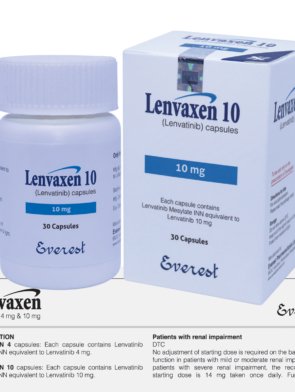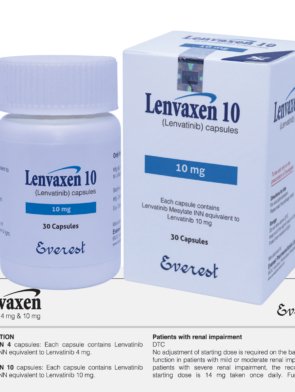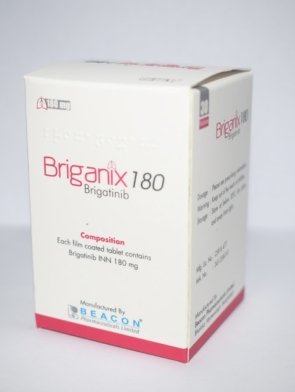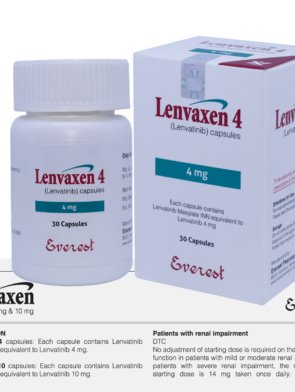Sunitinib (Sunitix)12.5 mg
£0.00
Sunitix (Sunitinib) is an orally administered, small-molecule inhibitor that targets multiple receptor tyrosine kinases. It received FDA approval for the treatment of renal cell carcinoma and gastrointestinal stromal tumors that are resistant to imatinib.
Indication
Sunitinib (Sunitix) 12.5 mg is prescribed for treating several types of cancers, including gastrointestinal stromal tumors (GIST), advanced renal cell carcinoma (RCC), and pancreatic neuroendocrine tumors (pNET).
Pharmacology
Sunitinib functions as a multi-kinase inhibitor, blocking several receptor tyrosine kinases (RTKs) such as vascular endothelial growth factor receptors (VEGFRs), platelet-derived growth factor receptors (PDGFRs), and stem cell factor receptor (KIT), among others. This inhibition impedes tumor growth, angiogenesis, and metastasis, contributing to its anticancer properties.
Dosage and Administration
The prescribed dose of Sunitinib (Sunitix) 12.5mg varies based on the cancer type being treated. Generally, it is taken orally once daily, either continuously or following a schedule of four weeks on treatment followed by two weeks off treatment. Capsules should be swallowed whole with water, ideally at the same time each day, with or without food.
Interaction
Sunitinib can interact with various medications, particularly strong CYP3A4 inhibitors and inducers, as well as drugs affecting gastric pH. Concurrent use of these agents may alter sunitinib’s plasma concentration, potentially affecting its efficacy or leading to toxicity. Therefore, it’s crucial to review a patient’s medication list before initiating sunitinib treatment.
Side Effects
Common adverse effects associated with sunitinib therapy include fatigue, diarrhea, nausea, vomiting, hypertension, hand-foot syndrome, stomatitis, and skin discoloration. Additionally, patients may experience hematological issues like neutropenia, thrombocytopenia, and anemia.
Precautions and Warnings
Monitoring of blood pressure, liver function, thyroid function, and cardiac function is necessary during sunitinib therapy. Patients should promptly report any new or worsening symptoms, including signs of bleeding, infection, or cardiovascular problems. Sunitinib should be cautiously used in individuals with pre-existing cardiac issues or impaired liver/kidney function.
Overdose Effects
In the event of an overdose, supportive care should be provided, and symptomatic treatment initiated as needed. No specific antidote exists for sunitinib overdose. Patients should be closely monitored for adverse reactions, with management tailored to address individual symptoms.
| Product Name | Sunitix |
|---|---|
| Generic Name | Sunitinib |
| Formulation | Capsule |
| Available Pack Size | 28 |
| Available Strengths | 12.5 |
| Package | 28 capsules |
You must be logged in to post a review.






Reviews
There are no reviews yet.